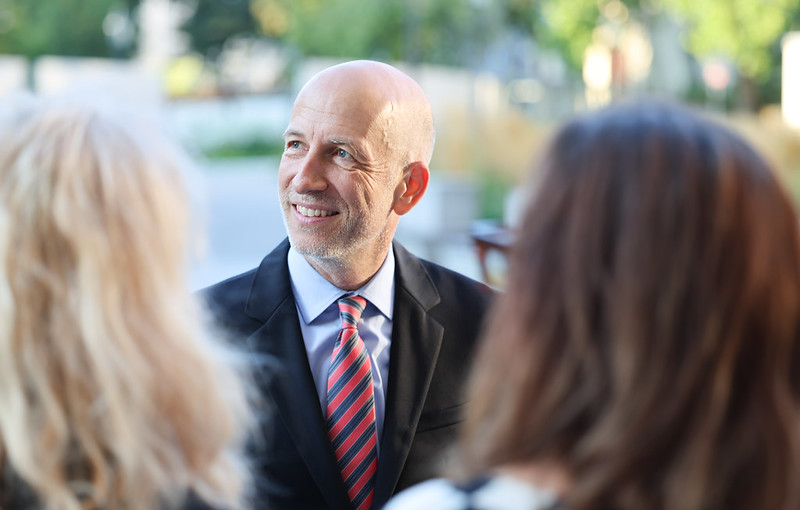By David Barwick – FRANKFURT (Econostream) – European Central Bank Governing Council member Martin Kocher on Sunday said that the ECB was either done or virtually done easing monetary policy.
In an interview with the FT, Kocher, who heads the Austrian National Bank (OeNB), said, “For now, this interest rate cycle has come to its end, or very close to it.”
The justification for remaining on hold last week would, “without major changes,” at subsequent Council meetings still “to some extent, continue to hold,” he said.
Echoing his comments from Friday's press conference at the OeNB, Kocher said that it was nonetheless “important to remain vigilant and not read too much into the current stability,” given various sources of uncertainty.
“If the data shift, if risk assessments change, then a response will be required,” he said. “This can go in either direction.”
Trade data was “extremely hard to read at the moment because so many factors overlap,” he observed. All the same, the fact that the EU and the US had come to an agreement on trade “has removed an element of uncertainty,” he said.
Still, he predicted “a slightly negative impact on growth” in Europe from the deal.
As to France’s fiscal situation, Kocher said that notwithstanding “some movement” in bond spreads, “we are still far from the levels seen during the euro crisis a decade or so ago.”
“There is no need for action for the ECB,” he said.
Kocher indicated he would be different from his predecessor, arch-hawk Robert Holzmann. “The ECB Governing Council is not the place for ideology but the engine room of monetary policy, where optimal decisions should be made on the basis of the data available,” he said.
At the moment, he would “currently lean towards the cautious side” in setting monetary policy, and, the paper said, advise against letting inflation risks mount, an attitude he was quoted as calling “an Austrian tradition.”

